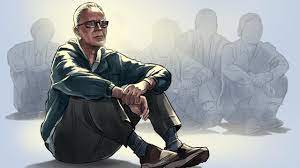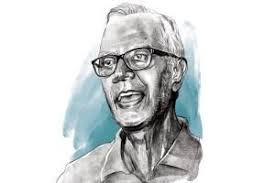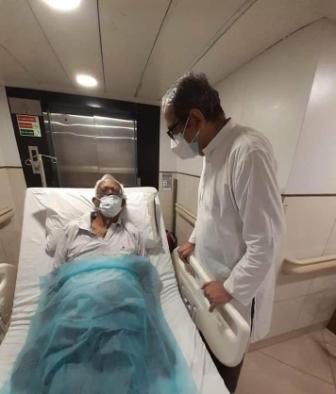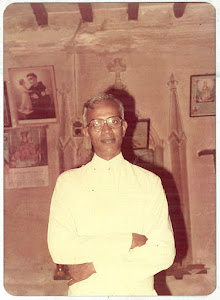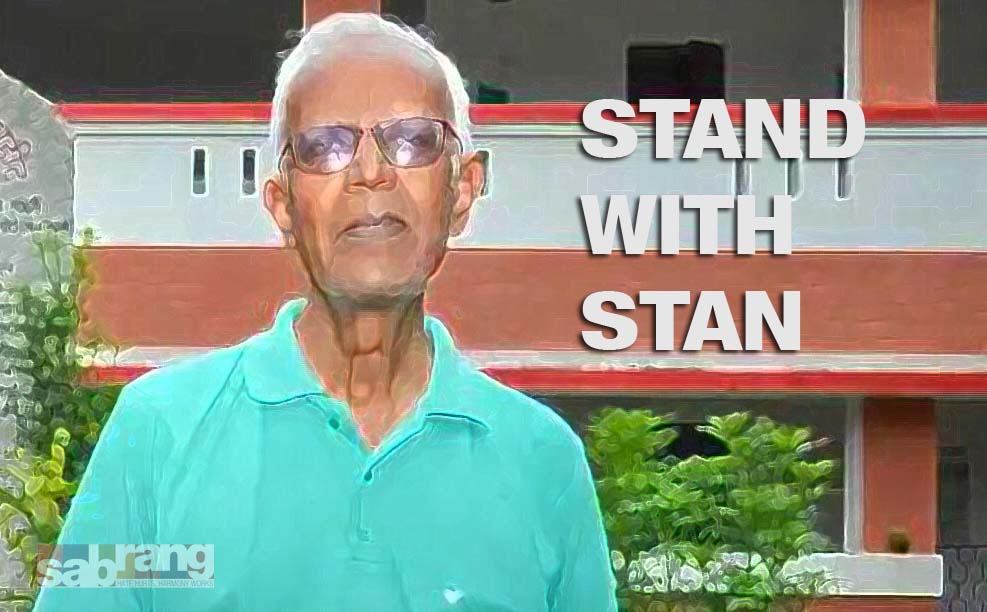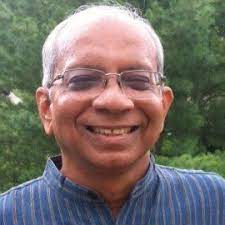Times are bad in India: Manipur has been burning for two months now. Millions of citizens all over are denied their fundamental rights. Corruption and crony capitalism are rampant. Opposition politicians can be bought up and blackmailed by the ruling regime. The mega-project profiteers and the mafia who plunder our precious natural resources destroy the lives and livelihood of the poor and marginalised besides wreaking havoc on our fragile ecosystems.
There is a serious lack of political will to address systemic issues; besides hurried legislation and prejudiced policies are designed to favour the powerful and other vested interests. Economically, India is in the doldrums; xenophobia and exclusivism are on the rise; discrimination, divisiveness, hate and violence are mainstreamed.
Democratic space continues to shrink and Constitutional values are blatantly violated; be it freedom of speech and expression, the freedom of religion and belief, the right to life and livelihood, the right to privacy or to marry the person of one’s choice the rights of the citizens are being systematically curtailed! At the receiving end of an unjust, inhuman and vindictive regime are the Adivasis, Dalits, minorities, women and children, the migrant workers and the displaced, the small farmers and the casual labourers, the poor and the unemployed, the vulnerable and the excluded, human rights defenders and academics and others!
Given the grim realities which throttle the nation today, one person whose physical presence is greatly missed today is that of Jesuit Father Stan Swamy. Two years ago on 5 July 2021, he said ‘good-bye’ to us, having completed his pilgrimage here on earth. He was arrested on 8 October 2020 on fabricated charges, incarcerated in the Taloja jail where he suffered very much. His terrible and untimely death is regarded by many as ‘institutional murder’. He has still not been declared ‘innocent’ by the courts. However, Stan (as he was called by all very lovingly) the man, mission and message -lives on in the hearts and lives of thousands everywhere. He has left us with a rich legacy and challenges us to live that legacy today.
In his early days, Stan was a trainer, mentor, guide – inspiring hundreds of youths and others through social awareness programmes and to critically analyse what was happening in society; there are many today from across the board, who are and will always be grateful for the profound impact he left on their lives. For Stan, his heroes and motivators were the likes of Paolo Freire, Dom Helder Camara and Fr Pedro Arrupe. Vatican II and the faith -justice mandate which emerged from the 32nd General Congregation of the Jesuits, greatly shaped Stan’s way of proceeding: his thinking and his actions. Like Jesus his Master, he questioned and taught others to question and challenge all that is wrong and unjust in society and to respond constructively and positively to these issues.
Stan did all he could to empower the Adivasis. He accompanied and struggled alongside with them on issues related to the violation of laws in acquiring land for mega projects for mining and infrastructural development which flout the rights of the downtrodden and tribals. He consistently raised his voice in democratic, legitimate ways against the state-sponsored violations of laws and assault on democratic rights of people aimed at paving way for unrestricted exploitation of land and natural resources.
He questioned the non-implementation of the 5th Schedule of the Constitution why the Panchayats (Extension to Scheduled Areas) Act [PESA], was being ignored. He strongly expressed his disappointment at the silence of the Government on the 1997 Samatha Judgment of the Supreme Court; he was visible and vocal at the half-hearted action of the Government on Forest Rights Act, 2006. He expressed his apprehensions at the Amendment to ‘Land Acquisition Act 2013’ by the Jharkhand government which was a death-knell for the Adivasi Community.
He strongly disagreed with the setting up of ‘Land Banks’ which he saw as a calculated plot to annihilate the Adivasis. He challenged the indiscriminate arrest of three thousand young Adivasis under the label of ‘naxals’ just because they questioned and resisted unjust land-alienation and displacement. And much, much more!
Stan walked the talk; he should be a motivating factor today for all to get out of our comfort zones, institutionalised lifestyles and cosmetic band-aid approaches to the grim realities which our people face today! Stan is physically no more but the other Bhima-Koregoan 15 (all human rights defenders) who have been vocal and visible in standing up for the rights of the poor, are still languishing in jail, some for five years now (though three are out on bail).
He has however, left behind a rich legacy which challenges us today; this legacy can be spelt out in five inter-related dimensions: Presence, Partnership, Participation, Prophetic and Pilgrim
Presence:
The essential thing that St Ignatius of Loyola teaches one in the Spiritual Exercises is to be in the presence of God. A presence which undoubtedly helps leads one towards a meaningful physical presence among the people of God. God and his people were ever present in Stan’s life. Stan was always in the midst of his people; he pitched his tent among them: he sang and danced with them; he ate their meals and walked the miles with them. He lived for them and he died for them. Like a good shepherd he smelled of the sheep. His presence among the people was perhaps to a fault. He gave without counting the cost; he was never ensconced in a comfort zone. His life was totally people-centred. Till the very end he begged the Presiding judge to give him bail to go back to be with his people; he never lost focus of this fundamental.
Participation:
For meaningful communion and effective mission, one must participate in the sufferings and sorrows, the struggles and anxieties, the cries and yearnings of those who are denied their legitimate place in society. Stan was an authentic participant in the lives of the people. He was visible; he spoke loudly and strongly; he was articulate, he studied and analysed society and the plight of the poor; he wrote and gave interviews (his letters and poems from jail are a testimony to this). He stood with the Adivasis against the powerful and other vested interests who robbed them their ‘jal, jungle aur jameen’. He internalised and actualised the words of Pope Francis in ‘Evangelii Gaudium, “I prefer a Church which is bruised, hurting and dirty because it has been out on the streets, rather than a Church which is unhealthy from being confined and from clinging to its own security. I do not want a Church concerned with being at the centre and which then ends by being caught up in a web of obsessions and procedures”. This was Stan’s mantra too and he had no hesitation in sharing it with others.
Partnership:
Given the enormity and the complexity of the issues which challenge us, one cannot work alone or in our institutionalised silos. One needs to work with all women and men of goodwill for the establishment of a more just, equitable, free, fraternal and dignified society. Stan realised this throughout and for him his partners were the Adivasis and the Dalits, human rights defenders, lawyers and academics, animists, agnostics and atheists, from every gender and everyone else who would help realise the goals of the Constitution of India. He believed in collaboration and networking, an essential which the Society reaffirmed in the 35th General Congregation; “We must in turn look to our collaborators in mission and say, with gratitude and affection, that the call we have received is a call shared by us together”. (D.6 #3) Yes, many of us welcome them into our institutions (we must continue to do so) but are we ready to join them – in their programmes, in their initiatives? Whom do we identify with? were Stan’s perennial questions! He journeyed with others in the relentless struggle for a more just and humane society.
Prophetic:
A prophet whilst announcing the good news, must denounce all that is wrong, unjust and evil in society. One needs to take a stand; to be visible and vocal. Stan, as true disciple of Jesus, truly feared no one! Because of this, he did have many enemies; those who felt that he was a thorn in their flesh. He minced no words when he challenged his own to stop over-institutionalisation, to stop catering to the privileged and elite sections of society (who have plenty of other possibilities and opportunities) and above all, to get out of the safety and security of one’s comfort zone! Stan was a prophet of and for our times. He radiated an unparalleled prophetic courage and ultimately, he had to pay the price for it!
Pilgrim:
Like St. Ignatius, Stan was a pilgrim in the true sense of the word. He believed in movements: people on the move, just like in the Biblical ‘Exodus’: the struggles of the ‘people of God’ for a more humane and Ignatius, Stan dignified life. Stan left no stone unturned to ensure the Kingdom of God on earth where all (particularly the sub-alterns) would be together and around a table of fellowship. Like a true pilgrim he lived a frugal life. It was a sad joke when they raided his room, besides his computer, the only’possesions’ the authorities were able to seize from him, would put a pauper to shame! A pilgrim is unencumbered with baggage and that’s what Stan was. Even today, his room, with the barest necessities, bears mute witness to the life of a man on the move – a real pilgrim
A little before his arrest in October 2020, Stan in a very powerful message said, “What is happening to me is not something unique- happening to me alone. It is a broader process that is taking place all over the country. We are all aware how prominent intellectuals, lawyers’ writers, poets, activists, students, leaders, they are all put into jail because they have expressed their dissent or raised questions about the ruling powers of India. We are part of the process. In a way I am happy to be part of this process. I am not a silent spectator, but part of the game, and ready to pay the price whatever be it”.
Today, Stan challenges us all to live the legacy he has left us, in a profound way by our presence among the people, by our participation in their struggles and joys, by partnering through a shared vision and mission with other women and men of good will, by having the courage to play a prophetic role and above all, to be a pilgrim.
From Taloja Jail he wrote, “My needs are limited. the Adivasis and the Society of Jesus, have taught me to lead a simple life… Listening to the life narratives of the poor prisoners is my joy in Taloja Jail… I see God in their pains and smiles… Many of such poor undertrials don’t know what charges have been put on them, have not seen their chargesheet and just remain for years without any legal or other assistance. The 16 co-accused have not been able to meet each other as we are lodged in different jails or different ‘circles’ with the same jail”; he concludes, “but we will still sing in chorus. A caged bird can still sing.”
Do we have the courage to walk in Stan’s footsteps and sing the way he did, today?
Fr Cedric Prakash SJ(Gujarat) is a well-known human rights, reconciliation and peace activist/writer. The opinions expressed in this article are entirely those of the author and do not necessarily reflect the official views of the editor and staff of Newsnet One.


